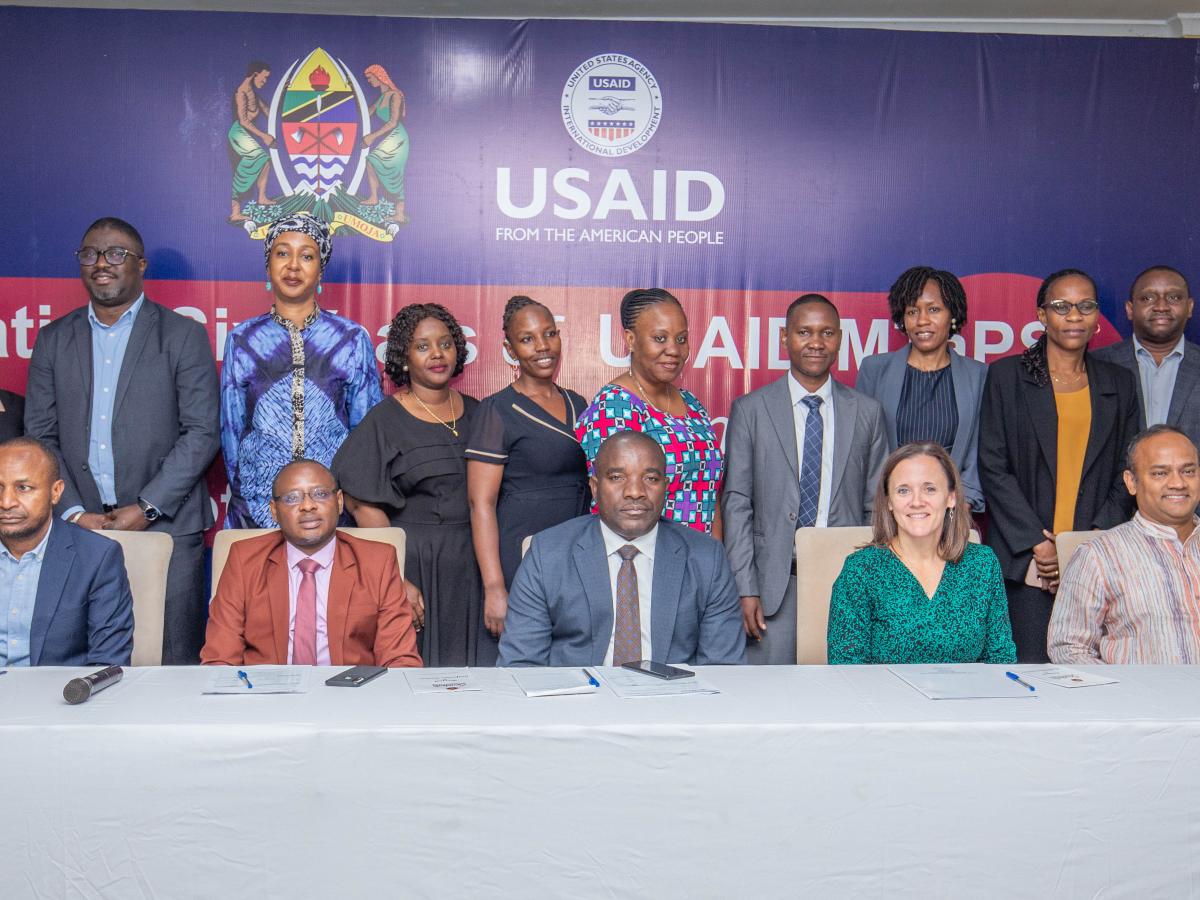For Immediate Release
Press Release
United States Celebrate Six Years of Strengthening Tanzania Pharmaceutical System to Prevent Infectious Diseases
Dar es Salaam – Today, the U.S. Government and the Government of Tanzania celebrated the achievements of the U.S. Agency for International Development (USAID) Medicines, Technologies, and Pharmaceuticals Services (MTaPS) project, a six-year, $11.4 million USAID project that saved countless lives by improving the appropriate prescribing of medicines and preventing the spread of infectious diseases within hospitals.
The USAID project strengthened the Tanzania Medicines and Medical Devices Authority (TMDA) capacity to improve the availability, safety, and effectiveness of medicines. It also worked with the Ministry of Health to support antimicrobial stewardship in 10 hospitals, ensuring doctors prescribe the right medicines for the right diseases, which improved patient care and reduced drug-resistant bacteria.
“MTaPS has shown unparalleled leadership and dedication in the fight against antimicrobial resistance through financial and technical support in the implementation of antimicrobial stewardship programs from the national level to health facilities,” said Pharmacist Emiliana Francis and Ministry of Health National Coordinator for Antimicrobial Resistance. “Their pioneering efforts have not only saved lives but have also set a gold standard for innovation in health care in Tanzania, leaving a lasting legacy of progress and sustainability in the fight against antimicrobial resistance.”
The USAID project helped these health facilities strengthen their ability to prevent and control infections by establishing systems to monitor and track them and ensuring widespread access to training.
“I was happy to study the IPC [infection prevention and control] course in e-learning as I had never taken an online course before due to time and work priority constraints that prevented me from physically traveling to take in-person training,” said Mary Ranald, a tutor at Kibosho School of Nursing. “Because of the revised IPC guideline updates incorporated into the course, I will now be able to teach my students current IPC practices.”
Through USAID, the United States remains committed to continuing this same level of dedication, collaboration, and partnership with the government and people of Tanzania.
In 2019, drug-resistant bacteria was the leading cause of death worldwide - 1.3 million people - more than HIV or malaria. In the same year, sub-Saharan Africa was the most affected region in the world, with almost 115 deaths per 100,000 people associated with drug-resistant bacterial diseases.
For more information about this press release, please contact the USAID Development, Outreach and Communications Team at Dardocs@usaid.gov.

